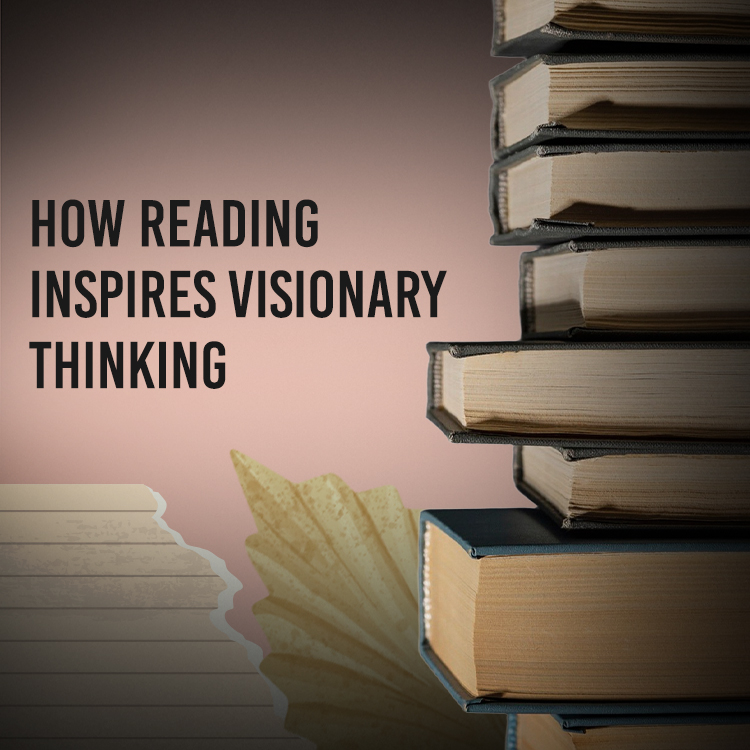Visionary thinking is often thought of as an inborn gift—a spark of genius, a trait reserved for innovators and changemakers. But the truth is, visionary thinking is not a rare trait; it’s a cultivated habit. And one of the most effective tools to nurture it is reading.
The Power of Books
Books expose us to lives, ideas, dilemmas, and dreams beyond our immediate world. They stretch our imaginations and deepen our understanding of human nature. When you read widely—across genres, eras, and cultures—you train your mind to connect dots in new ways. Fiction introduces empathy and symbolism. Biographies teach about adversity and breakthrough moments. Philosophy challenges how we interpret truth and meaning.
Visionary Leaders and Their Reading Habits
Visionary leaders throughout history have credited books as a central source of their creative thinking. Elon Musk famously said, “I read books and talked to people. That’s how I learned.” Steve Jobs, Oprah Winfrey, and Bill Gates are all known for being lifelong readers. Their ability to spot patterns, predict trends, and lead revolutions in their industries didn’t come from luck—it came from feeding their minds with rich, diverse knowledge.
Books Encourage Deep Reflection
But it’s not just about consuming information. Books invite deep reflection, unlike fast-paced social media content. They allow you to sit with ideas, wrestle with them, and reframe them through your own lens. This slow thinking process is where visionary ideas are born. It’s in those quiet, intentional moments of reading that new perspectives form.
A Case in Point: The Heart’s Compass
A book like The Heart’s Compass: Navigating Dreams by Noman Said is a good example. It’s not about quick wins—it’s about meaningful progress. The book takes you through real challenges, personal realizations, and thoughtful guidance. And in doing so, it encourages you to rethink your own goals. Are they aligned with your values? Are you creating something new, or just following a path someone else laid out?
Cultivating Humility and Curiosity
Reading also cultivates humility—another overlooked trait in visionary thinkers. Books remind us how much we don’t know. And it’s that sense of curiosity and openness that allows new ideas to flourish. The visionary mind isn’t rigid; it’s expansive. It doesn’t seek answers alone; it seeks better questions.
Conclusion: Read and Reflect for a Visionary Future
If you want to become a forward-thinker in your field, don’t just scroll and react—read and reflect. The ideas you absorb today might just build the future you create tomorrow.





